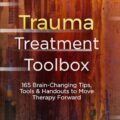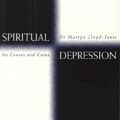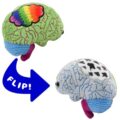Managing ptsd can be challenging, but there are many resources available to help. This blog post will guide you to some effective tools.
Also Read
Ptsd, or post-traumatic stress disorder, affects many people worldwide. Finding the right resources can make a big difference in managing symptoms. Therapy, support groups, and self-help techniques offer valuable support. Online platforms also provide useful information and community forums. Books, apps, and hotlines can be great additional aids.
Each resource serves a unique purpose and can suit different needs. Understanding these options can empower you to take control of your mental health journey. This post explores various resources designed to support individuals dealing with ptsd, helping you find the best fit for your needs.
Buying Guide On Resources For Managing Ptsd
resources for managing ptsd
finding the right resources can help manage ptsd symptoms. This guide lists valuable resources for those in need.
1. Books
books offer in-depth understanding and coping strategies.
- the body keeps the score by bessel van der kolk
- complex ptsd: from surviving to thriving by pete walker
- waking the tiger by peter a. Levine
2. Therapy
professional therapy can provide structured support.
- cognitive behavioral therapy (cbt)
- eye movement desensitization and reprocessing (emdr)
- exposure therapy
3. Support groups
connecting with others can offer comfort and shared experiences.
- online forums
- local community groups
- peer support programs
4. Apps
mobile apps can offer on-the-go assistance.
- ptsd coach
- headspace
- calm
5. Lifestyle changes
simple changes can improve mental health.
- regular exercise
- healthy diet
- consistent sleep schedule
6. Educational websites
online resources provide valuable information.
- national center for ptsd
- ptsd alliance
- mental health america
7. Hotlines
immediate help is available through hotlines.
- national suicide prevention lifeline
- veterans crisis line
- samhsa’s national helpline
Conclusion
Managing ptsd can be challenging, but many resources are available to help. Therapy and support groups offer valuable guidance. Books and online articles provide useful information. Meditation and exercise can help reduce stress. Trusted friends and family members can be a great support system.
Remember, you don’t have to face ptsd alone. Seeking help is a sign of strength, not weakness. Make use of the resources around you. Take small steps every day towards recovery. Your journey to healing is important. Reach out, stay informed, and take care of your mental health.
With the right support, you can manage ptsd effectively.























